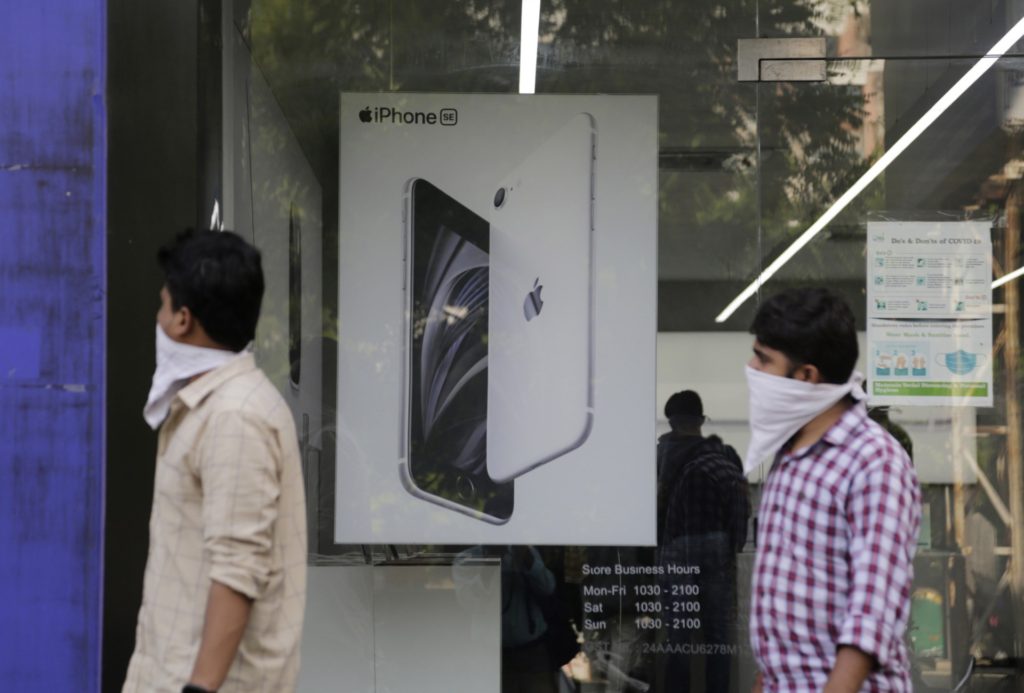Tata Group, India’s largest multinational conglomerate, is reportedly in talks with Taiwan’s Wistron Corporation to purchase the latter’s $600 million iPhone manufacturing plant in Karnataka, India.
If the deal is finalized soon, as expected, Tata will become India’s first domestic producer of Apple’s flagship product.
Bloomberg News on Monday quoted “two people familiar with the process” who said the deal should be done by the end of March. According to these sources, a few last issues of the takeover are being hammered out, with the most likely final arrangement placing Tata in charge of manufacturing at the plant “with support from Wistron.”
Also, finalizing the deal at the end of March will make Tata and Wistron eligible to receive certain incentives from the Indian government, which are handed out in a fiscal cycle that begins on April 1.
“Tata’s deal would advance India’s efforts to create local contenders to challenge China’s dominance in electronics, which has been jeopardized by political tensions with the U.S. and Covid-related hurdles,” Bloomberg observed.

Customers shop at an Apple Store on the first day of sale for the Apple iPhone 14 in Beijing, China, on Sept. 16, 2022. (AP Photo/Mark Schiefelbein, File)
The plant in Karnataka covers 2.2 million square feet and has about 10,000 employees, many of them highly skilled electronics engineers. Wistron’s expertise is presumably needed to make the transition smooth, although Tata has people with iPhone experience since it already runs an iPhone component factory in the same general area. Tata is further planning to open a hundred Apple retail stores, beginning in the next few months.
Wistron is one of several Taiwanese companies that produce iPhones for Apple. Most of them are attempting to shift at least part of their operations from China to alternative locations in India and Vietnam, a supply chain diversification effort that picked up steam after China’s coronavirus lockdowns caused an incredible disaster at the massive Foxconn plant in Zhengzhou.
Tata, an enormous and diverse Mumbai-based conglomerate that makes, ships, or sells just about everything, is reportedly eager to do more business with Apple and to demonstrate that India can replace China as a manufacturing hub. Tata also sees an opportunity to win favor with Indian consumers by bringing them domestically-produced iPhones at lower prices.
Indian’s WION News noted on Monday that Apple exported over $2.5 billion worth of iPhones manufactured in India between April and December 2022, roughly doubling exports from the previous fiscal year.
Foxconn and Wistron were good for about $1 billion of those exports apiece, while another Taiwanese manufacturer, Pegatron Corp., accounted for the other $500 million.
Even as Indian exports of iPhones surged, China’s share of global production dropped from about 47 percent before the pandemic to 36 percent in 2021. Meanwhile, India could be up to 25 percent of global iPhone production by 2025.
WION cited these figures as evidence “some of the Western tech companies are shifting from China when it comes to production.”

In this Saturday, Aug. 1, 2020, file photo, people walk past an image of an iPhone displayed at an Apple store in Ahmedabad, India. (AP Photo/Ajit Solanki, File)
Indian Prime Minister Narendra Modi on Wednesday touted his country’s strong “macroeconomic fundamentals,” which flow from its “strong democracy, young demography, and political stability,” for winning praise from the International Monetary Fund (IMF) and World Bank.
“We have opened strategic sectors like defense, mining, and space for the private sector,” Modi told an investment forum in Indore.
The IMF last week called India a “relative bright spot in the world economy today” because it is “growing at rates significantly above its peer average.”
“Macroeconomic policies are responding to the significant headwinds, with fiscal policy measures supporting vulnerable groups and monetary policy addressing persistently high inflation,” the IMF said, advising India to further develop its manufacturing sector in order to reach the next level of growth.
The World Bank said on Wednesday that it expects India’s economic growth to slip a little in the coming fiscal year, slowing to 6.6 percent from an unexpectedly strong 6.9 percent this year, largely due to “the slowdown in the global economy and rising uncertainty.”
The World Bank seconded the IMF’s advice for India to spend more on infrastructure and “business facilitation” to expand its manufacturing sector.

COMMENTS
Please let us know if you're having issues with commenting.